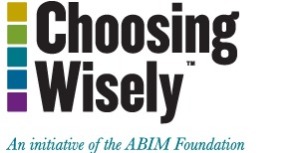by
Brendon Nafziger, DOTmed News Associate Editor | December 14, 2011
A group of doctors and consumer advocates has tasked a handful of medical societies to come up with a list of five overused medical tests, in an effort to shine light on the unnecessary care that's driving up the country's health care costs.
The program is the opening move of the Choosing Wisely campaign, a collaboration among the ABIM Foundation, which says it promotes medical professionalism, nine medical societies and Consumer Reports.
To start, the campaign has asked each participating medical society to develop "Five Things Physicians and Patients Should Question." These lists will be posted on the Choosing Wisely's website in April.




Ad Statistics
Times Displayed: 30380
Times Visited: 760 Stay up to date with the latest training to fix, troubleshoot, and maintain your critical care devices. GE HealthCare offers multiple training formats to empower teams and expand knowledge, saving you time and money
Societies taking part include the American Academy of Allergy, Asthma & Immunology, the American Academy of Family Physicians, the American College of Cardiology, the American College of Physicians, the American College of Radiology, the American Gastroenterological Association, the American Society of Clinical Oncology, the American Society of Nephrology and the American Society of Nuclear Cardiology.
The American College of Radiology said it would come up with a list of imaging exams that should be questioned before being ordered as well as advice on how to safely and appropriately use scans.
"Although imaging use is down significantly since 2008 and Medicare spending on imaging is the same as in 2004, opportunities remain to ensure appropriate ordering of scans," Dr. John A. Patti, chair of the ACR Board of Chancellors, said in a statement. "As greater access to imaging is directly tied to increased life expectancy, ACR will identify areas where care can be improved without restricting patient access."
Citing Centers for Medicare and Medicaid Services figures, the ABIM Foundation said at current rates, U.S. health care spending would total $4.3 trillion by 2019, increasing from 17 percent to more than 19 percent of the country's GDP.

